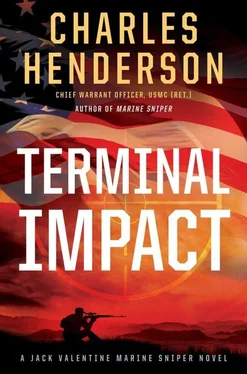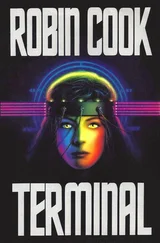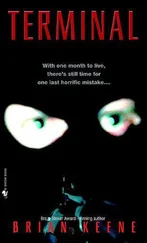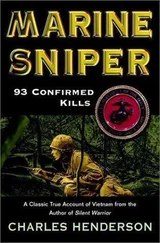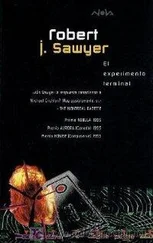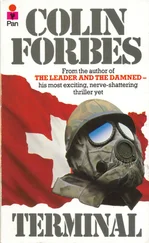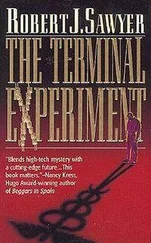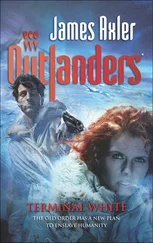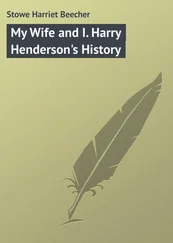Abu Musab al-Zarqawi sat far in the back with two bodyguards. Another bodyguard drove the air-conditioned minivan that had a compartment built in the floor where Zarqawi could hide, along with a small cache of weapons, at roadblocks. Three children sat in the middle seat, and a woman posing as their mother rode in the front passenger seat.
For soldiers and police at checkpoints, this looked like any other typical Iraqi family traveling the highway. They had papers and stories for every contingency.
By the time they reached Tikrit, Abu Musab ordered the driver to find the next fuel stop and pull in. His stomach had begun rumbling shortly after breakfast. Now it had gotten unbearable. Possibly nerves. Possibly bad meat.
Al-Qaeda Iraq’s leader could not get to the restroom fast enough. When he came out twenty minutes later, his face damp from washing it, he looked pasty pale and green under his eyes.
“We should turn back, master,” his bodyguard who drove told him. “We can send words to the others who went ahead of us, and those behind us. Let Abu Omar have the American and enjoy his moment of praise. It remains our victory.”
Zarqawi could only nod and walk back to the van.
“After Omar Bakr takes the head of the American,” Zarqawi said, stretching out in the backseat, behind where the other two bodyguards sat, unbuttoning his trousers for his stomach to relax. “Take Omar’s head, too. Send it to me in a white box.”
“Very good, sir,” the aide said. “Anything else?”
“A blue ribbon on it,” Zarqawi said.
“On Abu Omar’s head?” he asked.
“On the box,” Zarqawi said, forcing a smile at the gunman as he released a long, foul-smelling fart.
“Very good, sir,” the driver said, and turned to the woman and children who stood outside. “Get in. We will go back to Hibhib.”
* * *
When the telephone rang in Abu Omar’s office and bedroom, Yasir looked at the other men, not knowing quite what to do. All other times, the boss had left strict orders for everyone to leave things alone.
As the phone rang again and again without stopping, a guard posted by the front door gave Yasir a look and a shrug.
“Alright!” Yasir said, and went into the office.
He picked up the cellular telephone tied to a rooftop booster and antenna. “Yes?”
“Our cousin has fallen ill,” the voice said. “He cannot travel to Rawa today. You should proceed as you have planned. We will get together later.”
Then the caller hung up the phone.
Yasir looked at the handset and put it back on Abu Omar’s desk.
“What is it?” the guard at the door asked.
“Abu Musab al-Zarqawi has fallen ill and will not come to Rawa today,” Yasir said. “He says to proceed as planned.”
“Very good!” the gunman said. “We should send someone immediately to tell Abu Omar. He will be very unhappy if he waits at al-Rawa tonight, and Zarqawi does not come.”
“I know!” Yasir said, frustrated, worried, confused.
He was not good with decisions.
“I will go,” Yasir finally told the man at the door.
The gunman shook his head no.
“I will take one man with me,” he said. “You will have four men here, plus yourself and those four girls. Just do not unlock the door to the cell, and all will go well.”
“I am in charge!” Yasir said. “I will decide who goes and who stays.”
The gunman bowed and smiled at Yasir. “I only made a suggestion. Of course, you are in charge. What shall I do?”
“Take one man with you and inform Abu Omar that Abu Musab is ill, and will not be in Rawa,” Yasir said.
“Very good, sir,” the gunman said, and whistled to a cohort in the yard, standing watch. He pointed to a white Nissan pickup with a Kalashnikov PKM machine gun on top. “We go to Rawa to fetch Abu Omar home. Zarqawi is not coming.”
Giti came running from the kitchen when she heard the truck leave. “What is wrong?”
“Get to work!” Yasir scolded her. Then Sabeen came to the door.
“Are you alright, Yasir?” she asked, smiling at him.
He smiled back at the hefty girl who lifted his heart when she gave him those looks, as if she desired him as much as he wanted her.
“All is fine, Sabeen,” he said, and she came close to him and stood at his side, looking outside, watching the dust trail behind the departing truck. Yasir imagined that this must be how it felt to have a wife by one’s side. He savored the moment.
Two other trucks sat beneath the cover of the date palms, and infrared-reflecting camouflage netting draped over them, where aircraft flying patrols overhead could not spot them.
Yasir had one truck’s set of keys on the ring that he carried on his belt, his truck that he used for his errand runs to Haditha. It had no guns or mounting racks for automatic weapons. Just a rusty white pickup with rattling windows and a radio that buzzed when he played it.
The other truck had a headache rack on the back with a Russian PK machine gun mounted on it. Loaded and ready to run. One of the guards downstairs had those keys.
* * *
Elmore Snow, flanked by fifty-four Marines mounted in eighteen up-armored Hummers with machine guns on turrets, rolled online. Ahead of them, the first water stop on Speedy Espinoza’s map of caravan routes.
As the flanking vehicles took up defensive positions, surrounding the ancient outpost, Colonel Snow and First Sergeant Barkley pulled their truck past a line of date palms, into the dooryard, scattering a hundred goats that roamed the place. A shaggy brown dog came running out of the house, and Rattler, who sat in the back of the Hummer with Sergeant Padilla, began growling.
“Keep your dog in the truck until we take care of this one,” Elmore said as he stepped out, and Alvin Barkley set the brakes.
An Arab in a black-and-white-checked keffiyeh, khaki trousers, sandals, and a ragged white shirt came out of the house, behind the dog, waving his hands in the air and jabbering Arabic so fast that the interrogator-translator who got out of the next Humvee couldn’t understand the old herdsman. He told him to stop his tirade and speak slowly.
“We are peaceful people here,” the Bedouin said slowly in his native language. “We are poor and peaceful. We raise goats and feed travelers as our ancestors have done here since God made this land.”
With each phrase, the translator told the colonel and the first sergeant what the man said.
“Who is here besides him?” Snow asked.
After a translation, the old man with the gray scruff growing on his cheeks and more empty gaps than he had left of his long yellow teeth, pointed at the house and started to cry as he spoke.
“My old wife and me, and our little granddaughter,” he wailed, real tears blinking from his wrinkled eyes. “My sons have been taken, and their wives, too. All taken for the war and all dead. All that is left to carry my legacy is one little girl who is eight years old. She hides inside with her grandmother. Please do not harm us.”
Alvin Barkley looked at the colonel and shook his head. “We need to check the basement. These guys can cry a good story. The Hajis will leave an old man and a woman and a little kid to sit on top of their explosives and guns.”
The colonel looked at the translator. “Tell him we mean no one any harm, but he must put the dog in the barn and allow my men to search the house and the basement.”
Before the translator had finished, the man began waving his arms in the air and protesting.
“See what I mean?” Barkley said. Then he looked at the translator. “Tell him to put the dog in the barn, or I will shoot it.”
Then the first sergeant turned back to the Hummer. “Sergeant Padilla, you and Rattler do your thing.”
Читать дальше
